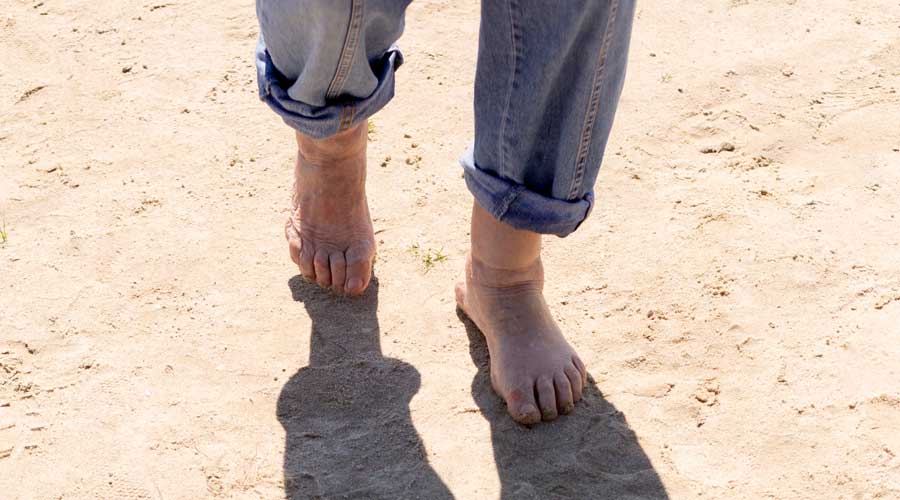How to reduce stress and anxiety when mindfulness is not for you
23 Apr 2024

Try mindfulness exercises. Grab a yoga mat. Do a meditation retreat. How many times have we been told to try these well-known approaches to reducing stress and anxiety? Have you ever found a soothing voice unsettling rather than calming during mindfulness? You're not alone. Even though these methods have shown to be effective, they might not work for everybody. Reducing stress and anxiety can often call for thinking outside the box.
Here are some less conventional, yet effective ways to alleviate anxiety:
Walk barefoot
Walking barefoot, also known as "earthing" or "grounding," is believed by some to have stress-relieving benefits, though scientific research on this topic is limited. Advocates of earthing suggest that direct contact with the Earth's surface – such as grass, soil, sand, or even concrete – allows the body to absorb free electrons from the Earth, neutralising free radicals and reducing inflammation, thereby promoting relaxation, and reducing stress. Maybe it's time you take your shoes off and get them dirty in the mud!

Forest bathing
Known as "Shinrin-yoku" in Japan, forest bathing is the practice of immersing oneself in nature, especially forests, to promote physical, mental, and emotional well-being. Forest bathing involves mindfully engaging with the natural environment, such as walking slowly, breathing deeply, and using all five senses to connect with the sights, sounds, smells, textures, and tastes of the forest. In fact, a growing number of studies have shown that spending time in natural environments can lower cortisol levels and reduce anxiety. So, turn off your devices and go bathe in a forest.
Laugh until tears
Laughter truly is the best medicine. Watching a funny movie, attending a comedy show, or simply spending time with friends who make you laugh can help reduce anxiety by releasing endorphins, the body's natural feel-good chemicals. Laugher also promotes muscle relaxation and increases oxygen flow to the brain and body through improved breathing, which promotes a sense of calmness, and helps shift our focus away from sources of stress. By incorporating laughter into our daily lives through humour, social interaction, and enjoyable activities, we can effectively manage stress and enhance our overall well-being.
Float in water
Floating in water, whether it's pool, a lake, the ocean, or a floatation tank, can help you escape the stresses of daily life. The sensation of weightlessness and the reduced effect of gravity on joints and muscles can have profound effects on mental well-being. By promoting physical relaxation, stress reduction, mindfulness, and sensory deprivation, floating offers a therapeutic experience that can help calm the mind and alleviate anxiety.
Hug someone or yourself
Hugs and physical touch have been shown to have various positive effects on mental and physical health. Whether you do it through hugging therapy – a practice that involves therapeutic touch through hugs with the intention of promoting emotional well-being and reducing stress – or simply by hugging someone you care about, a good hug will surely be emotionally beneficial to you. Studies have shown that even hugging yourself can lower cortisol levels in your body and promote relaxation.

Virtual Reality (VR) therapy
Virtual reality technology is increasingly being used as a tool for anxiety treatment. VR therapy consists of transporting individuals into immersive and interactive virtual worlds, which are fully controlled by a researcher or trained therapist. These experiences can simulate calming environments and replicate real-life situations, or guide users through relaxation exercises, providing an immersive distraction from anxious thoughts.
And did you know that some suggest watching a beaver munching on cabbage can lower stress levels by 17%? You can certainly give it a try by watching the video below.